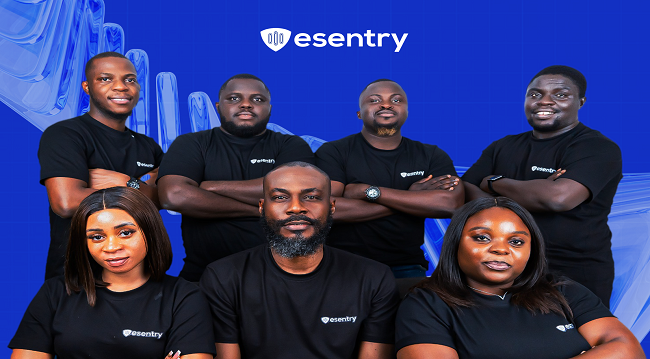E-Business
Unlocking Marketing Success in Nigeria with Google My Business

By Reuben Kalu
In the dynamic landscape of business marketing, harnessing the power of online platforms is essential for reaching and engaging with potential customers.

For businesses in Nigeria, where the digital marketplace is rapidly expanding, leveraging tools like Google My Business (GMB) can be a game-changer.
In this comprehensive guide, we’ll explore how Nigerian businesses can utilize Google My Business to enhance their marketing efforts and achieve greater success.
Understanding Google My Business
Google My Business is a free and user-friendly tool provided by Google that allows businesses to create and manage their online presence across Google Search and Google Maps.
With GMB, businesses can create a detailed listing that includes essential information such as their address, contact details, operating hours, website link, and customer reviews.
This listing appears prominently in Google search results and maps, making it easier for potential customers to find and engage with the business.
Optimizing Your Google My Business Listing
The first step in leveraging Google My Business effectively is to create a comprehensive and accurate listing for your business. Here’s how you can optimize your GMB listing:
Claim Your Listing: If your business hasn’t already been listed on Google My Business, you’ll need to claim and verify it.
This involves verifying that you’re the owner or authorized representative of the business.
Provide Accurate Information: Ensure that all the information provided in your GMB listing is accurate and up-to-date. This includes your business name, address, phone number, website URL, and operating hours.
Add Photos and Videos: Visual content can significantly enhance your GMB listing and make it more appealing to potential customers. Add high-quality photos and videos that showcase your products, services, and premises.
Collect and Respond to Reviews: Encourage satisfied customers to leave positive reviews on your GMB listing. Be proactive in responding to reviews, both positive and negative, to demonstrate your commitment to customer satisfaction.
Utilize Google Posts: Google Posts allow you to share updates, promotions, and events directly on your GMB listing. Take advantage of this feature to keep customers informed and engaged.
Monitor Insights: Use the Insights tab in your GMB dashboard to track how customers are finding and interacting with your listing. This data can provide valuable insights into your target audience and help you refine your marketing strategies.
Enhancing Local SEO with Google My Business
One of the most significant benefits of Google My Business for Nigerian businesses is its impact on local search engine optimization (SEO).
By optimizing your GMB listing, you can improve your business’s visibility in local search results and attract more customers in your area. Here are some tips for enhancing your local SEO with GMB:
Choose Relevant Categories: Selecting the most relevant categories for your business in your GMB listing helps Google understand what your business is about and improves its chances of appearing in relevant search queries.
Optimize Your Description: Craft a concise and informative business description that highlights your products, services, and unique selling points. Incorporate relevant keywords to improve your chances of ranking in local search results.
Geotag Your Photos: When uploading photos to your GMB listing, geotag them with your business location. This helps Google associate the images with your physical premises and enhances your local SEO.
Encourage Local Reviews: Positive reviews from local customers can significantly boost your business’s visibility in local search results. Encourage satisfied customers to leave reviews on your GMB listing and respond promptly to all feedback.
Use Local Keywords: Incorporate local keywords and phrases into your GMB listing, website content, and other online marketing materials. This helps Google connect your business with local search queries and improves your local SEO performance.
Engaging with Customers and Building Trust
Google My Business isn’t just a tool for improving your business’s visibility; it’s also a platform for engaging with customers and building trust.
By actively managing your GMB listing and interacting with customers, you can foster positive relationships and enhance your reputation. Here are some strategies for engaging with customers through GMB:
Respond to Customer Inquiries: Monitor your GMB listing regularly for customer inquiries and messages. Respond promptly and professionally to address their questions or concerns.
Share Updates and Offers: Use Google Posts to share updates, promotions, and special offers with your audience. This helps keep customers informed and encourages them to visit your business.
Showcase Customer Reviews: Highlight positive customer reviews on your GMB listing to build social proof and instill confidence in potential customers. Respond to reviews graciously, whether they’re positive or negative.
Provide Useful Information: Use your GMB listing to provide useful information that can help customers make informed decisions. This could include details about your products and services, FAQs, or links to helpful resources.
Monitor and Improve: Regularly monitor the performance of your GMB listing and use the insights gained to refine your marketing strategies. Experiment with different approaches and measure the impact on your business’s visibility and engagement.
Conclusion
Google My Business is a powerful tool that can significantly enhance your marketing efforts as a Nigerian business.
By optimizing your GMB listing, leveraging local SEO techniques, and engaging with customers effectively, you can improve your business’s visibility, attract more customers, and build stronger relationships with your audience.
So, take advantage of this invaluable resource and unlock new opportunities for growth and success in the Nigerian market.
E-Business
Kaspersky Discovers New Phishing Campaign Exploiting Google Tasks Notifications to Steal Corporate Credentials

Kaspersky has uncovered a new phishing scheme that abuses legitimate Google Tasks notifications to trick corporate users into revealing corporate login credentials.

By leveraging Google’s trusted @google.com email domain and notification system, attackers bypass traditional email security filters and exploit users’ trust in familiar services.
In this campaign, victims receive an authentic-looking notification from Google Tasks with the subject line “You have a new task.” The message creates the illusion that the recipient’s company has adopted Google’s task management tool, pressuring them to act quickly. The notification often includes elements of urgency, such as a high-priority flag and a tight deadline, to prompt the victim’s immediate response.
Upon clicking the embedded link, users are directed to a fraudulent form disguised as an “employee verification” page, where they are asked to enter their corporate credentials under the pretense of confirming their status. These stolen credentials can then be used for unauthorised access to company systems, data theft, or further attacks.
“Google’s vast ecosystem of services gets exploited by scammers. The scheme with Google Tasks is part of a broader trend observed before and continuing into 2026, where cybercriminals misuse legitimate platforms to distribute scams and phishing.
Notifications originating from legitimate domains naturally evade many spam and phishing filters, while the social engineering aspect – making it seem like an internal company process – lowers the victim’s guard,” comments Roman Dedenok, Anti-Spam Expert at Kaspersky.
E-Business
esentry 2025 Report Shows Healthcare, Financial Services and Telecoms as Staging Grounds for Increased Cyberattacks in Africa

Cyber adversaries targeting African organisations are increasingly shifting away from opportunistic attacks toward deliberate, sector-specific campaigns aimed at the continent’s most critical digital infrastructures, according to the esentry 2025 Annual Report released by esentry, Lagos-based Africa’s leading indigenous Managed Security Service Provider (MSSP).

The report identifies healthcare, financial services, and telecommunications as the primary staging grounds for high-velocity cyberattacks, reflecting a growing focus on sectors that underpin economic stability, public welfare, and digital connectivity across Africa.
The findings are drawn from one of the largest cybersecurity datasets analysed in the region. Over the course of 2025, esentry processed more than 31 billion security events, generating 3.5 million alerts and successfully blocking over 15,000 malicious attempts. This monitoring scale shows that, while traditional financial institutions remain a core target, the threat landscape has expanded to include digital lending platforms, healthcare systems that store sensitive personal data, and telecom operators responsible for national and regional connectivity.
Within the healthcare sector, the report highlights ransomware as the most acute risk, with attackers frequently exploiting exposed Remote Desktop Protocol (RDP) services to compromise patient data and disrupt essential medical operations. In financial services, organisations are facing a surge in credential abuse, insider-related threats, and info-stealer malware designed to enable fraud and unauthorised access. Telecommunications providers are increasingly targeted by highly tailored phishing campaigns and attacks on exposed web services, which aim to harvest credentials and compromise customer data.
Commenting on the findings, Gbolabo Awelewa, Chief Business Officer at esentry, said the nature of cyber threats across Africa has evolved significantly. “The threats we are seeing today are deliberate, informed, and carefully tailored to local enterprises. Attackers are exploiting trusted access and moving quietly within networks, which makes early detection critical. Our coordinated cybersecurity model, spanning Defence, Intelligence, Offence, and Security Engineering, allows us to combine scale, speed, and deep contextual insight to detect and neutralise threats before they escalate,” Awelewa said.
A defining trend identified in the report is the shift from overt system exploitation to the abuse of legitimate access. By leveraging compromised credentials and ‘living-off-the-land’ techniques, attackers can blend into routine enterprise operations and significantly delay detection. This approach has compressed the attack lifecycle, enabling adversaries to move from initial access to full operational impact in fewer than 15 days.
To counter this acceleration, the report emphasises the importance of early detection and automated response. esentry says it currently contains low-complexity incidents in under 90 seconds, using a combination of structured threat hunting and centralised telemetry to anticipate and absorb attacker pressure rather than reacting after damage has occurred.
As African organisations continue to digitise, the esentry 2025 Annual Report positions itself as a critical reference point for understanding the continent’s evolving cyber threat environment. The report concludes that protecting Africa’s digital trust will require a shift away from fragmented security tools toward disciplined, coordinated defence frameworks, what esentry describes as a unified Phalanx formation.
E-Business
AfDB, UNDP Launch $10Bn AI Initiative for Africa

The African Development Bank Group (AfDB) and the United Nations Development Programme (UNDP) have launched an ambitious $10 billion project to support the adoption of Artificial Intelligence (AI) across the continent.

The 10 Billion Initiative intends to accelerate ethical AI adoption and inclusive digital economic growth in Africa.
The initiative follows the Nairobi AI Forum, which took place earlier this month in Kenya and brought together governments, private sector leaders, development partners, and tech innovators to define pathways for impactful AI adoption.
According to the organisations, the strategy is a co-designed collaboration between the Bank Group, UNDP, and commercial partners that aims to raise up to $10 billion by 2035.
The resources will be used to create up to 40 million new jobs across the continent by 2035, through targeted investments that provide the groundwork for AI and accelerate widespread adoption in everything from entrepreneurship and regional data infrastructure to policy frameworks and skill development.
Nicholas Williams, AfDB Group ICT operations division manager, commented: “As a leading multilateral development institution, the bank is leveraging its comparative advantage to ensure Africa is not left behind in the AI era.
“The AI 10 Billion Initiative paves the way for expanded partnerships and sustained investments that will accelerate AI entrepreneurship, strengthen data and infrastructure ecosystems, and support inclusive growth across the continent.”

 E-Business2 days ago
E-Business2 days agoAfDB, UNDP Launch $10Bn AI Initiative for Africa

 Telecom2 days ago
Telecom2 days agoGrey Expands Cross-Border Banking with USD Accounts, USDC Support

 News3 days ago
News3 days agoObasanjo, Vanguard’s Amuka Lead Prayers for Zinox Chief Leo Stan Ekeh @70

 News2 days ago
News2 days agoLotus Bank, REA Seal N100Bn Deal to Power Rural Nigeria

 News2 days ago
News2 days agoDG NITDA Reaffirms FG Commitment to Responsible, Inclusive AI

 E-Financial2 days ago
E-Financial2 days agoCBN Cuts MPR by 50bps to 26.50% as Inflation Eases for 11th Month

 General News2 days ago
General News2 days agoKaspersky Enhances Network Detection and Response Capabilities with KATA 8.0 Release

 E-Financial2 days ago
E-Financial2 days agoKuda Bank Teams Up with Lovers & Frnds for Inclusive Valentine’s R&B Bash














